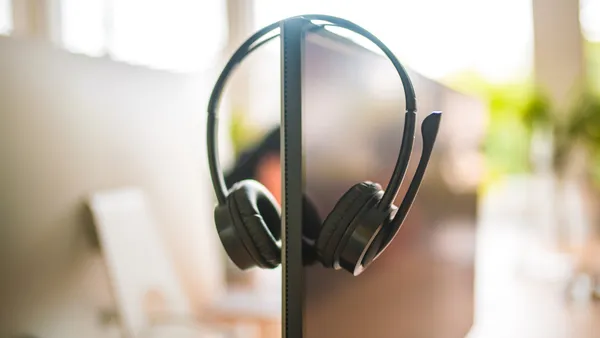By now, you’re probably sick of hearing about “quiet quitting.”
If you’re at the point where seeing Q’s makes you queasy, I have bad news: We’re in a labor revolution, spearheaded by Gen Z, so discourse around the ever-evolving future of work won’t die down anytime soon.
Zaid Khan (@zaidlepellin) ignited this discourse when he expressed his desire to quiet quit in a viral TikTok, stating he no longer wants to go above and beyond. The debate is multilayered. In one way, it’s about ambition. In another, it’s about fair pay. Another, it’s about generational differences influencing all of these factors. Ultimately, it’s about whether work influences your sense of self.
To better understand some of the concerns of and indignation from HR leaders regarding this labor revolution, I spoke to Amy Mosher, chief people officer at isolved.
“Previously, we would have called it coasting,” Mosher said of the “bare minimum” labor approach. “In some instances, I think [some employees are] not working at all, where they can get away with it,” she said.
“They really are getting in for a half an hour or an hour a day, doing everything that they think their boss wants them to do. And then checking out for the rest of the day,” she continued. “There are even individuals that have multiple jobs that are… moonlighting, if you will, is what the term used to be.”
I understand the frustrations of many HR pros, especially when retention has been a struggle for many employers and so has engagement — and a dip in engagement and two-week notices tend to go hand-in-hand.
In an attempt to maintain control, many organizations have returned to remote monitoring software — a phenomenon that Mosher brought up. “There's also a lot more technology utilization by employers to track the amount of time that employees are spending on the network, in the database, on that customer call,” Mosher said.
And still, she continued, the shift to remote work did “open the door for individuals, who are not motivated, to weaponize or take advantage of that.”
While these instances aren’t unheard of and may give some HR pros heartburn, this may not actually fall under the category of quiet quitting. In the TikTok, Khan described “quiet quitting” as “no longer subscribing to the ‘hustle culture’ mentality that work has to be your life.” Arguably, a quiet quitter wouldn’t be the kind of person whose lack of engagement raises red flags on remote monitoring software or who clocks in at multiple jobs to game the system.
“Quiet quitting” may be cut from the same cloth as “work-life balance” and “destigmatizing mental health.” I think everyone deserves to be compensated for the labor that they do, especially if they are asked to do work outside of the role that they were hired for. I think that everyone, no matter how “hard” their job is, deserves to take breaks during their shifts (whether formal or informal). Everyone deserves to have paid time off. Everyone deserves a boss and a boss’ boss who cares about their mental health, and provides them the accommodations they’re owed.
@zaidleppelin On quiet quitting #workreform ♬ original sound - ruby
There also is a generational difference in approaches to work, period, that is exacerbating tensions in the digital discourse. Not only as a CPO, but as a mother of adults who have just entered the workforce, Mosher told me she witnessed it first hand. “How I spent my 20s was: putting in as many hours as I possibly could, learning as much as I possibly could,” she said. Her children, on the other hand, are “wired very differently” and have a “work to live” approach — whereas it’s not uncommon to find Mosher working on weekends, she said.
Along with the sociology of generational differences, there’s also the fact that people, when they live long enough, will have survived some devastating times — ones that are impossible to ignore and have a direct effect on their wallets.
“Anybody under 30 has has never really worked in a situation where there's been like a 2008 or 2001 situation: Where the markets crash, there are mass layoffs and some restructuring, and you have to do more with less,” she explained. “And not everybody you know has a job, or has the opportunity to go and get more [work].”
With a longer page count of lived experiences, there can be a “picking up the slack” mindset that develops.
Her solution is to re-onboard employees — to beef up L&D initiatives as a method of retention. Many HR experts have highlighted research indicating that these kinds of opportunities will endear employees to organizations. From an HR standpoint, it may also upskill the remaining employees in the event of layoffs or hiring freezes, and prepare organizations to do more with less.
Shortly after I spoke to Mosher, I spoke to another professional in the HR industry, learning more about her company’s approach to hybrid health. We got onto the topic of generational approaches to mental health as a whole.
I know that I stand on the shoulders of wellness giants and that the level of vulnerability I have — on the internet as a journalist, with my co-workers, with my friends — is quite different than that of my parents or my grandparents. Even my position as elder member of Gen Z, I imagine, could make me more open about my mental health than the millennial I was talking to.
As I continue to write about generational differences and ageism, I have been keeping this thought top of mind: Older workers’ approach to work isn’t necessarily wrong — it’s just different, with its pros and cons like everything else. So all I ask is that, when speaking about Gen Z’s adoption of quiet quitting, people of all ages keep the same in mind. And who knows, there may be something to that more laid back, laissez-faire approach. You may even find work-life balance.
Correction: An earlier version of this story incorrectly identified Mosher's company. The firm's name is isolved.




















